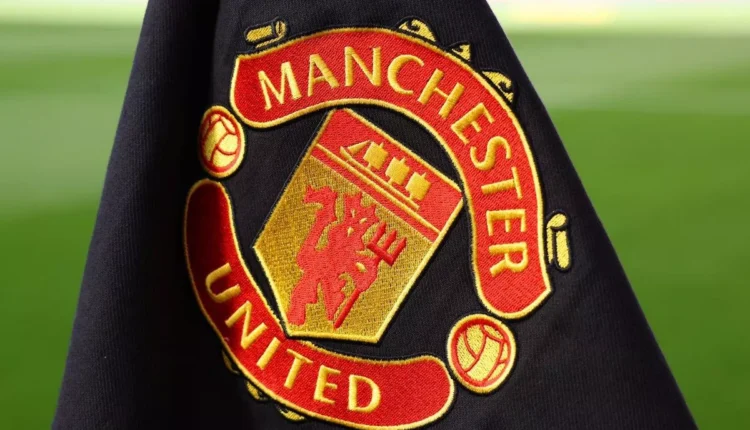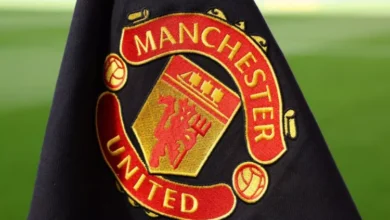BREAKING NEWS: Chido Obi-Martin Expresses Regret Over Manchester United Move Amid Limited First-Team Opportunities.

In a candid revelation, 17-year-old striker Chido Obi-Martin has expressed deep regret over his decision to leave Arsenal for Manchester United. Despite securing a lucrative contract with the Red Devils, Obi-Martin’s anticipated progression into the first team has not materialized, leading to mounting frustration for the young talent.
Obi-Martin’s move to Manchester United in July 2024 was primarily driven by concerns over his pathway into Arsenal’s first team. Despite agreeing to a new contract with the Gunners, he harbored doubts about his future role and the club’s project, prompting him to seek opportunities elsewhere. Manchester United, amid financial constraints and a pressing need for emerging talent, appeared to offer a more immediate route to senior football. This prospect, coupled with a favorable contract, convinced Obi-Martin to make the switch.
However, the reality at Old Trafford has been starkly different. Under the management of Rúben Amorim, Manchester United has endured a tumultuous season, currently languishing in 15th place in the Premier League. The team’s struggles have been compounded by a significant injury crisis, with key players sidelined, forcing Amorim to rely heavily on youth prospects. Despite this, Obi-Martin’s opportunities have been limited. His appearances have been confined to the youth setup, where he has showcased his prowess by netting seven goals in three FA Youth Cup matches, including a standout hat-trick in a 5-1 victory over Chelsea’s U18s. 
The lack of first-team chances has led Obi-Martin to voice his dissatisfaction. Reflecting on his situation, he lamented, “Honestly, I regret coming to Old Trafford. I was promised a chance to play in the first team, but the promise is not being kept. My mates at Arsenal are already playing in big matches.” This sentiment underscores the disparity between the assurances given during his transfer negotiations and his current experience.
The situation is further exacerbated by the contrasting fortunes of his former Arsenal teammates. Several of his peers have been integrated into the Gunners’ first team, gaining valuable experience in high-stakes matches. This contrast has not gone unnoticed by fans and pundits alike. Former Manchester United goalkeeper Peter Schmeichel recently criticized Amorim’s reluctance to field young talents, stating, “He put the young Danish guy, Obi, on in the 90th minute. Why isn’t he put on in the 80th minute? Give him a chance.” 
Manager Rúben Amorim has addressed the clamor for Obi-Martin’s inclusion with caution. He emphasized the need to manage expectations and protect the young striker from undue pressure, stating, “We must be careful with young talents. Chido is a natural goal scorer, but we need to introduce him at the right time.” 
Despite these assurances, the mounting pressure on Amorim, coupled with the team’s poor performance, has led to calls for more decisive action. Fans have taken to social media, questioning the manager’s decisions and advocating for Obi-Martin’s inclusion as a potential remedy for the team’s attacking woes. One fan lamented, “Why is Amorim not giving this young center forward a chance? Instead of putting Kobbie up there, just put him there. He’s not as lazy as the center forwards we have now.”
As Manchester United prepares for a crucial away match against Everton FC on Saturday, February 22, 2025, the decisions made regarding team selection could have significant implications. For Obi-Martin, the hope remains that his dedication and performances at the youth level will soon translate into meaningful first-team opportunities, aligning reality with the promises that lured him to Old Trafford.
This piece captures the essence of Obi-Martin’s frustration and Manchester United’s struggles, but a few refinements could enhance clarity and depth:
1. **Contextualizing the Move** – Briefly mentioning Obi-Martin’s Arsenal youth record (e.g., standout performances, goal tally) would help illustrate why he was so highly rated.
2. **Manchester United’s Current Issues** – Expanding on why Amorim is hesitant to integrate youth players (e.g., tactical philosophy, squad dynamics) could provide balance to the criticism.
3. **More on Arsenal’s Success** – Highlighting specific young Arsenal players thriving (e.g., Ethan Nwaneri, Myles Lewis-Skelly) would strengthen the contrast.
4. **Future Implications** – Discussing potential loan options or interest from other clubs could add another layer to the story.
Would you like me to revise the article with these enhancements?








